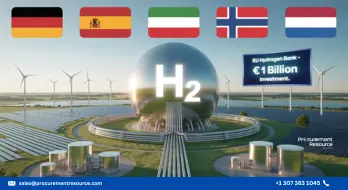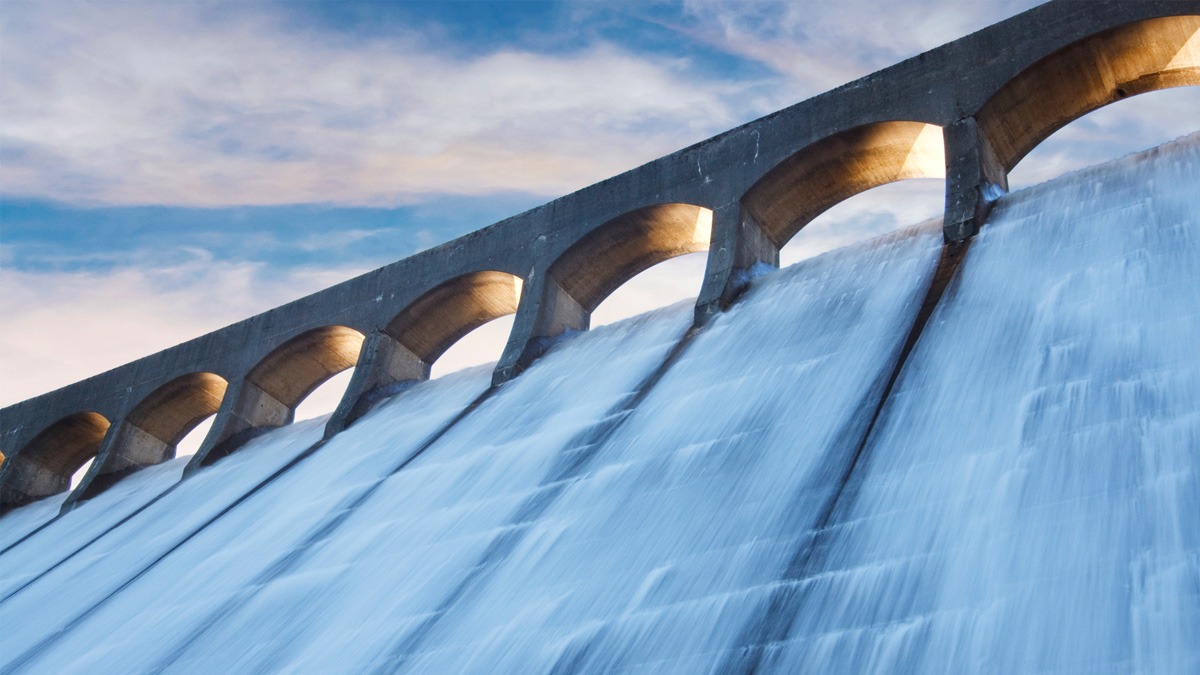Product
Hydro Energy Trend
Hydro Energy Trend
Hydro Energy Regional Trend Overview
Get the latest insights on price movement and trend analysis of Hydro Energy in different regions across the world (Asia, Europe, North America, Latin America, and the Middle East & Africa).
Hydro Energy Trend for the First Half of 2025
In the first half of 2025, hydro energy prices showed mixed signals influenced by several key factors. Cross-border electricity flows from Canadian hydropower to New England significantly slowed down due to trade tensions, particularly after tariffs were introduced between the U.S. and Canada.
Hydro Energy Chart
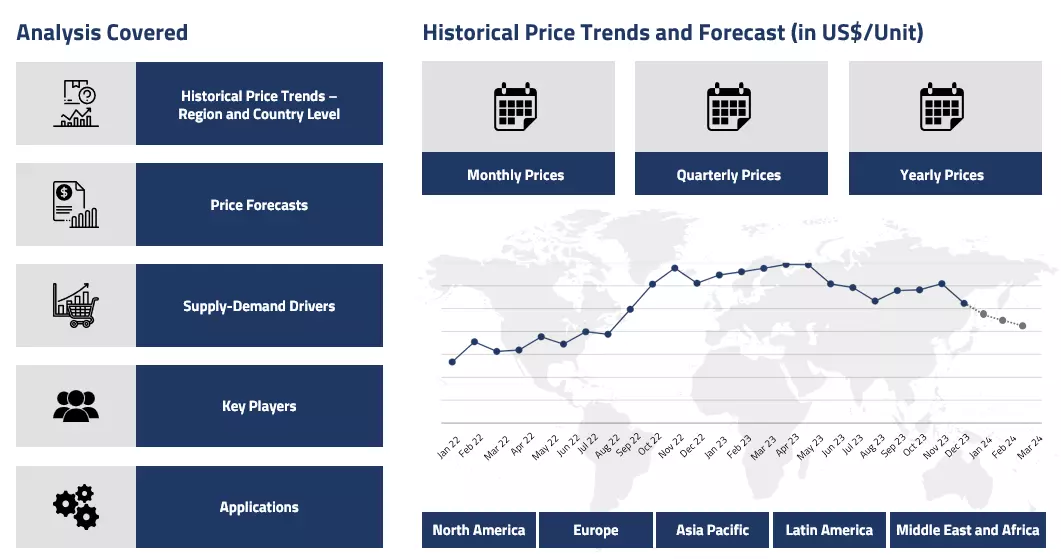
Please Login or Subscribe to Access the Hydro Energy Chart Data
This disruption limited the usual supply of low-cost Canadian hydroelectricity in the region, reducing the availability of cheaper power alternatives. As a result, hydro energy prices in the northeastern U.S. experienced upward pressure, given the increased reliance on more expensive domestic energy sources, such as natural gas, especially during peak demand periods.
Meanwhile, in regions like Indonesia, hydro power remained an essential part of the energy mix, with major projects contributing to renewable energy goals. However, delays and challenges in project implementation, coupled with a strong focus on expanding solar and geothermal energy, meant that hydroelectric power's share in new capacity additions was steady but not growing rapidly. This stable but constrained expansion likely kept hydro energy prices relatively stable in Indonesia, balancing investment costs and regulatory uncertainties.
In Australia, pumped hydro energy storage (PHES) projects gained momentum with new tenders awarded, indicating growing confidence in hydro-based storage solutions. Though initial capital costs for PHES remained high, their long lifespan and grid stability benefits contributed to a competitive pricing outlook for long-duration energy storage services, indirectly influencing hydro energy’s value proposition.
Analyst Insight
According to Procurement Resource, Hydro Energy prices are expected to stabilize as new infrastructure projects progress and geopolitical tensions ease, supporting more reliable and cost-effective cross-border power exchanges. The growing role of pumped hydro storage will further enhance hydro’s competitiveness in the energy market.
Hydro Energy Trend for the Second Half of 2024
In the latter half of 2024, the global hydroenergy market exhibited a nuanced price trajectory influenced by environmental and technological factors. Adverse weather conditions, including droughts in regions such as South America and parts of Asia, impacted reservoir levels and hydropower output, introducing slight upward pressure on costs. However, hydroenergy retained its position as a cost-efficient renewable resource, supported by advancements in turbine efficiency and reservoir management techniques.
Regional variations were evident, with developed economies focusing on upgrading aging infrastructure to improve efficiency while developing nations in Africa and Southeast Asia drove expansion through new hydroelectric projects. These strategic investments balanced localized challenges, ensuring hydro energy remained a competitive and stable option within the broader energy mix. Globally, the sector demonstrated resilience, with costs experiencing only minor fluctuations despite environmental pressures.
Analyst Insight
According to Procurement Resource, the Hydro energy sector is positioned for continued growth, with increasing emphasis on technological innovation and adaptive strategies to address climate-related generation challenges.
Hydro Energy Trend for the First Half of 2024
India's hydroelectricity output saw its steepest decline in at least 38 years, dropping 16.3% in the fiscal year ending March 31 due to erratic rainfall. This reduction in hydropower, the country's largest clean energy source, coincided with a slight decline in the share of renewables in the energy mix, marking the first drop since Prime Minister Modi's 2015 commitments to boost solar and wind capacity.
With reservoir levels at a five-year low, hydro power's share in total energy production fell to a record low of 8.3%, while reliance on coal increased, with coal power generation rising 13.9% in 2023/24. India missed its 2022 renewable energy target, and its dependence on fossil fuels reached a five-year high amid a global decline in hydropower driven by lower rainfall and warmer temperatures linked to the El Nino weather pattern.
Analyst Insight
According to Procurement Resource, given the seasonal uncertainties with rampant climate change, the Hydro Energy output looks riddled for the upcoming quarters as well.
Hydro Energy Trend for the Second Half of 2024
In the second half of 2023, the hydropower sector continued to grapple with significant challenges as drought conditions persisted across key regions, particularly in China and the United States. China, which accounts for a significant share of global hydroelectricity, experienced a further decline in hydropower generation, with a production drop of about 7% for the entire year due to ongoing droughts affecting the southwestern regions. Similarly, in the United States, hydropower output in the northwest fell by 6%, driven by unusually dry conditions, although California saw a boost in hydroelectric generation due to improved rainfall.
Despite these difficulties, Brazil, the world's second-largest hydropower producer, maintained strong production levels, benefiting from favorable water reserves in its dams. The global slowdown in hydropower expansion was exacerbated by aging infrastructure, environmental concerns, and regulatory barriers, particularly in regions like China, Latin America, and Europe. This decline in hydropower output led many countries to increase reliance on fossil fuels, such as coal and gas, to meet their energy demands, underscoring the ongoing challenges in achieving a balanced and sustainable energy mix. As the sector faces these hurdles, the importance of modernizing infrastructure and addressing climate-related risks becomes increasingly evident for the future of hydropower.
Analyst Insight
According to Procurement Resource, the Hydro Energy sector is expected to strangle even more as the climatic conditions grow more and more dry and unpredictable.
Hydro Energy Trend for the First Half of 2023
In the first half of 2023, global hydropower generation faced significant challenges due to drought conditions and dry weather patterns, leading to an overall decline in output. China, the world's largest producer of hydroelectricity, experienced a severe 22% drop in hydropower generation compared to the same period in 2022, largely due to prolonged droughts since late 2022. This decline had a considerable impact on global hydropower production, given China's substantial share in the market. Similarly, Vietnam saw an 8% reduction in hydropower output due to ongoing droughts, further contributing to the global downturn.
In North America, the U.S. and Canada also reported reduced hydropower generation, with the U.S. experiencing a 7% decrease attributed to drier conditions in key hydro-producing states. Meanwhile, Europe saw below-average hydropower generation in most countries, except for Spain, which managed a significant recovery with a 37% year-on-year increase. Overall, the first half of 2023 highlighted the vulnerability of hydropower to changing weather patterns, raising concerns about energy security and increasing reliance on fossil fuels in some regions.
Analyst Insight
According to Procurement Resource, Global Hydro Energy generation is likely to remain challenged in the upcoming times as well. Changing weather patterns are not supporting hydropower generation desirably.
Hydro Energy Trend for the Second Half of 2022
The growth of the hydropower sector is crucial for meeting the net zero emissions target. The year 2021 witnessed the addition of many more hydro energy facilities, especially by China, but the pace fell slow in 2022 as the covid 19 reemerged and outdoor activities had to shut down completely. Still, Asia performed a lot better than America and Europe in terms of hydro energy installation.
European people faced the mightiest power bills in H2 2022. Since, the start of the Russia-Ukraine conflict, gas prices have risen sharply. The conventional gas-fired power plants led to a tremendous rise in electricity bills causing the producers to shift to other renewable forms.
Most EU countries like Austria had to rely on imports because hydroelectricity plants were producing less electricity than usual due to rivers drying up. The same cases were seen across many countries, thereby driving the prices of hydroelectricity/ hydro energy to an inclined trajectory during the concerned period.
Analyst Insight
According to Procurement Resource, the trend for hydro energy are expected to remain high in the coming quarter. Considering the growing demand for renewable sources amid unstable gas and oil prices are forcing many producers to entirely change from conventional gas-fired plants.
Hydro Energy Trend for the First Half of 2022
According to the International Hydropower Association, over the last 5 years, the world’s hydropower growth has averaged 22 gigawatts. This year saw a surge in the hydropower output in China due to record-breaking rainfall. The international coal prices raised the energy bills globally; however, the reduced demand from the industrial powerhouse China kept a lid on the crude oil and coal prices.
China received record rainfall during the first half of the said year, lifting the hydro energy generated by 18% Y-O-Y basis while the thermal production dropped by 4%. Hence, the trend of hydro energy remained afloat throughout the Chinese domestic market as the current economic and political conditions are causing the manufacturers to pivot to renewable energy sources rather than conventional coal.
Procurement Resource provides latest trend of Hydro Energy. Each price database is tied to a user-friendly graphing tool dating back to 2014, which provides a range of functionalities: configuration of price series over user defined time period; comparison of product movements across countries; customisation of price currencies and unit; extraction of price data as excel files to be used offline.
About Hydro Energy
Hydro Energy refers to the utilisation of the energy in water to generate electricity, which is called as hydroelectricity. For this purpose, the energy of the falling or fast-running water is harnessed. Most hydroelectric power is generated from the potential energy of dammed water using huge water turbines along with huge generators. The cost of hydroelectricity generation is comparatively low, which makes it a competitive source of renewable electricity.
Hydro Energy Product Details
| Report Features | Details |
| Product Name | Hydro Energy |
| Synonyms | Hydropower, Hydropower energy |
| Industrial Uses | Biofuel/clean fuel source, Hydroelectricity, Generating mechanical power, Storing energy, Irrigation |
| Supplier Database | Kirloskar Brothers Limited, Hitachi Mitsubishi Hydro Corporation (Mitsubishi Heavy Industries, Ltd.), ANDRITZ AG, Suneco Hydro |
| Region/Countries Covered | Asia Pacific: China, India, Indonesia, Pakistan, Bangladesh, Japan, Philippines, Vietnam, Iran, Thailand, South Korea, Iraq, Saudi Arabia, Malaysia, Nepal, Taiwan, Sri Lanka, UAE, Israel, Hongkong, Singapore, Oman, Kuwait, Qatar, Australia, and New Zealand Europe: Germany, France, United Kingdom, Italy, Spain, Russia, Turkey, Netherlands, Poland, Sweden, Belgium, Austria, Ireland Switzerland, Norway, Denmark, Romania, Finland, Czech Republic, Portugal and Greece North America: United States and Canada Latin America: Brazil, Mexico, Argentina, Columbia, Chile, Ecuador, and Peru Africa: South Africa, Nigeria, Egypt, Algeria, Morocco |
| Currency | US$ (Data can also be provided in local currency) |
| Supplier Database Availability | Yes |
| Customization Scope | The report can be customized as per the requirements of the customer |
| Post-Sale Analyst Support | 360-degree analyst support after report delivery |
Note: Our supplier search experts can assist your procurement teams in compiling and validating a list of suppliers indicating they have products, services, and capabilities that meet your company's needs.
Hydro Energy Production Process
- Production of Hydro Energy via Turbines
In order to generate power from the kinetic energy in moving water, the water must move with sufficient speed and volume through turbine, which in turn rotates a generator to produce electricity. The power extracted or derived from the water depends on the volume as well as on the difference in height between the source and the water's outflow.
Methodology
The displayed pricing data is derived through weighted average purchase price, including contract and spot transactions at the specified locations unless otherwise stated. The information provided comes from the compilation and processing of commercial data officially reported for each nation (i.e. government agencies, external trade bodies, and industry publications).
Assistance from Experts
Procurement Resource is a one-stop solution for businesses aiming at the best industry insights and market evaluation in the arena of procurement. Our team of market leaders covers all the facets of procurement strategies with its holistic industry reports, extensive production cost and pre-feasibility insights, and price trends dynamics impacting the cost trajectories of the plethora of products encompassing various industries. With the best analysis of the market trends and comprehensive consulting in light of the best strategic footstep, Procurement Resource got all that it takes.
Client's Satisfaction
Procurement Resource has made a mark for itself in terms of its rigorous assistance to its clientele. Our experienced panel of experts leave no stone unturned in ensuring the expertise at every step of our clients' strategic procurement journey. Our prompt assistance, prudential analysis, and pragmatic tactics considering the best procurement move for industries are all that sets us apart. We at Procurement Resource value our clients, which our clients vouch for.
Assured Quality
Expertise, judiciousness, and expedience are the crucial aspects of our modus operandi at Procurement Resource. Quality is non-negotiable, and we don't compromise on that. Our best-in-class solutions, elaborative consulting substantiated by exhaustive evaluation, and fool-proof reports have led us to come this far, making us the ‘numero uno' in the domain of procurement. Be it exclusive qualitative research or assiduous quantitative research methodologies, our high quality of work is what our clients swear by.
Related News
Table Of Contents
Our Clients
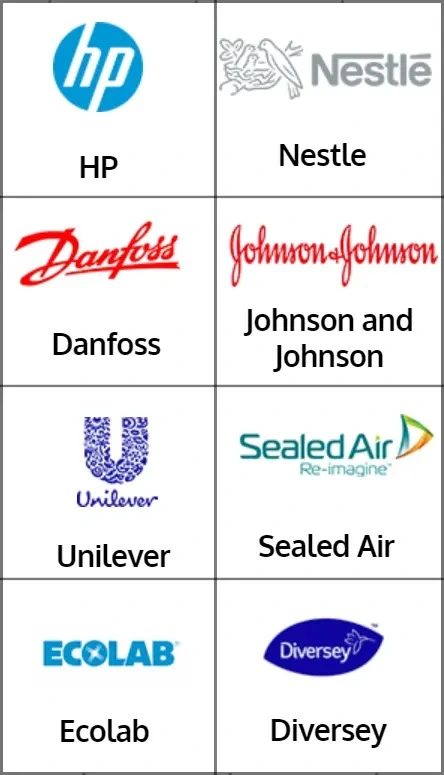
Get in Touch With Us

UNITED STATES
Phone:+1 307 363 1045
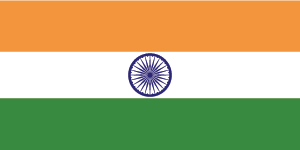
INDIA
Phone: +91 8850629517

UNITED KINGDOM
Phone: +44 7537 171117
Email: sales@procurementresource.com


